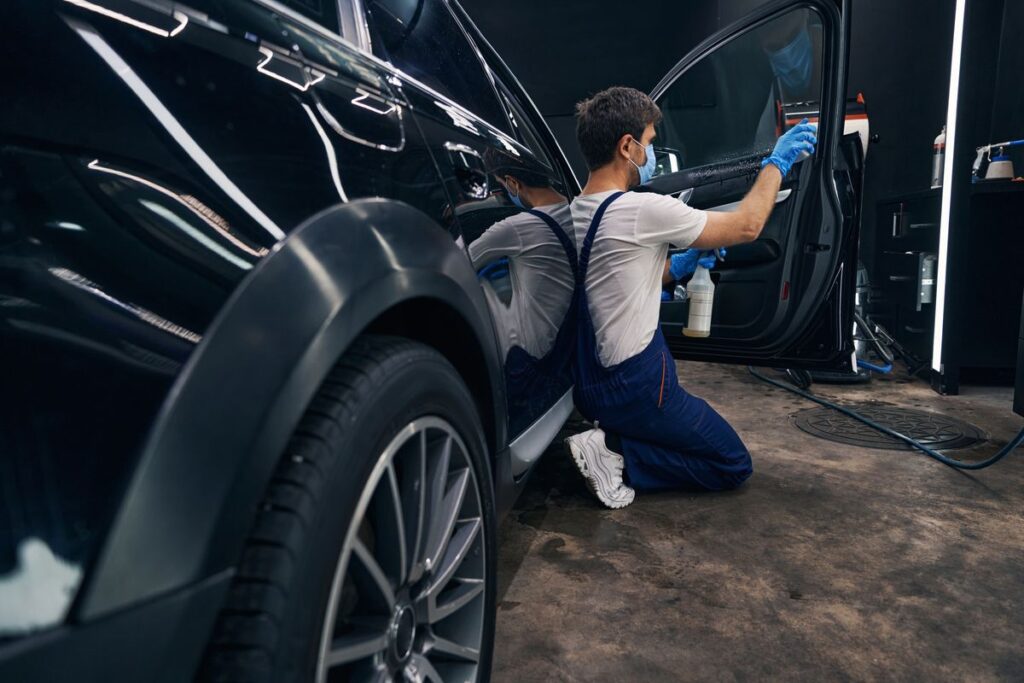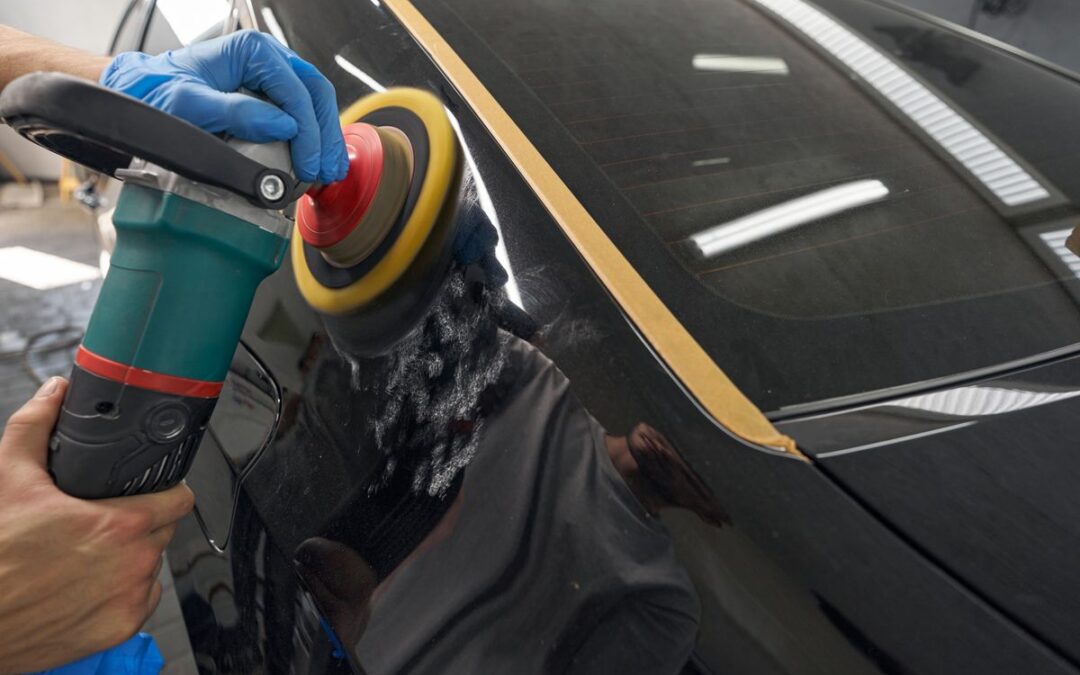When your car isn’t declared a total loss after an accident, it means the vehicle is repairable and can be brought back to its pre-accident condition. Moreover, even minor accidents can have a lasting impact on a car’s longevity and performance. What might seem like a superficial scratch or dent could be hiding more profound issues that, if left unaddressed, could lead to more significant problems down the line. There’s also the matter of your car’s value. Any accident, no matter how minor, can affect its resale value. Addressing and rectifying any damages promptly can help mitigate this potential depreciation. Here’s what typically happens if your car isn’t totaled in an accident while driving in Georgia.
1. Damage Assessment
After the accident, your insurance company will send an adjuster to evaluate the damage. They’ll inspect the car, take photographs, and estimate the repair costs. This assessment determines if the car is repairable or if the costs of repair exceed the car’s value.
2. Repair vs. Total Loss
If the estimated repair costs are less than a certain percentage (usually around 70-75%) of the car’s value, the insurance company will opt to repair the vehicle. If the costs are close to or exceed the car’s value, it might be declared a total loss, even if it looks repairable.
3. Choosing a Repair Shop
In Georgia, you have the right to choose where you want your car repaired. While your insurance company will recommend specific repair shops, you’re not obligated to use them. However, using an insurance recommended shop can sometimes expedite the repair process.
4. Repair Process
Once you’ve chosen a repair shop, they’ll begin the repair process. This might involve:
- Bodywork: Fixing dents, scratches, and other visible damages.
- Mechanical Repairs: Addressing any internal damage to the engine, transmission, or other vital components.
- Safety Checks: Ensuring all safety features, like airbags and brakes, are functional.
- Quality Control: After repairs, the vehicle undergoes a thorough inspection to ensure it meets safety and quality standards.
5. Rental Car Coverage
Depending on the extent of the damage, your car might be in the shop for several days or even weeks. Consider if your insurance policy covers a rental car. If not, you’ll need to factor in these costs or consider alternative transportation methods, like public transit or rideshares. While your car is in the shop, you might need a temporary vehicle. Check your insurance policy to see if it includes rental car coverage. If it does, the insurance company will cover the cost of a rental car for the duration of the repairs, up to a specified limit.
6. Diminished Value Claim
Even after repairs, a car that’s been in an accident might have a lower resale value. In Georgia, you can file a diminished value claim against the at-fault driver’s insurance. This claim seeks compensation for the reduction in your car’s value due to the accident.
7. Post-Repair Inspection
After your car undergoes repairs, its wise to do a post-repair inspection, especially following significant damage. This proactive step guarantees that professionals have addressed every concern, leaving no room for overlooked issues. By doing so, you can confidently hit the road again, knowing your vehicle meets all safety standards and operates at its best.
8. Consult with a Personal Injury Attorney
If you face any challenges with your insurance claim or believe you may be entitled to compensation for injuries, it’s a good idea to consult with an injury attorney familiar with Georgia’s accident laws. Expert personal injury lawyers like our team at Rebecca Kay Sapp Law Firm provide guidance and will help ensure your rights are protected.

Additional Tips If Your Car Isn’t Totaled In After Accident
- Understand “Diminished Value”: Even after repairs, a car that’s been in an accident might not have the same market value as before. Georgia recognizes claims for diminished value, meaning you might be entitled to compensation for the reduced resale value of your vehicle.
- Seek a Second Opinion: Don’t solely rely on the insurance adjuster’s assessment. Consider getting an independent mechanic or body shop to inspect the damage. They might find additional issues or suggest different repair methods, which could affect your claim.
- Document Everything: Keep a detailed record of all communication related to the accident and repairs. This includes emails, phone calls, and estimates. It’s always beneficial to have a paper trail in case disputes arise.
- Post-Repair Inspection: Once the repairs are done, consider a post-repair inspection by a trusted mechanic. They can verify the quality of the repairs and ensure there aren’t lingering issues.
- Know Your Rights: In Georgia, you have the right to choose where your car is repaired. While insurance companies might have preferred repair shops, they can’t force you to use them.
- Reassess Your Insurance: After an accident is an excellent time to reevaluate your insurance policy. Check if you need additional coverages or if certain benefits, like rental car coverage or better comprehensive coverage, might be beneficial in the future.
- Safety First: If you have doubts about the safety of your vehicle post-repair, address them immediately. No financial savings are worth compromising on safety.
- Stay Calm and Patient: Dealing with car repairs, insurance adjusters, and potential changes to your daily routine can be stressful. Remember to take a deep breath, stay patient, and keep your focus on getting your car back in the best shape possible.
Conclusion
Navigating the aftermath of an accident is never straightforward, even when your car isn’t totaled. While it might seem like a blessing in disguise, it’s essential to approach the situation with diligence and clarity. Tackling repairs, liaising with insurance companies, and ensuring your vehicle’s safety are paramount. As you wrap up this journey, remember that being proactive and informed will be your best allies. By taking these steps, you not only ensure your vehicle’s longevity but also safeguard your peace of mind, knowing you’ve addressed every aspect thoroughly.

